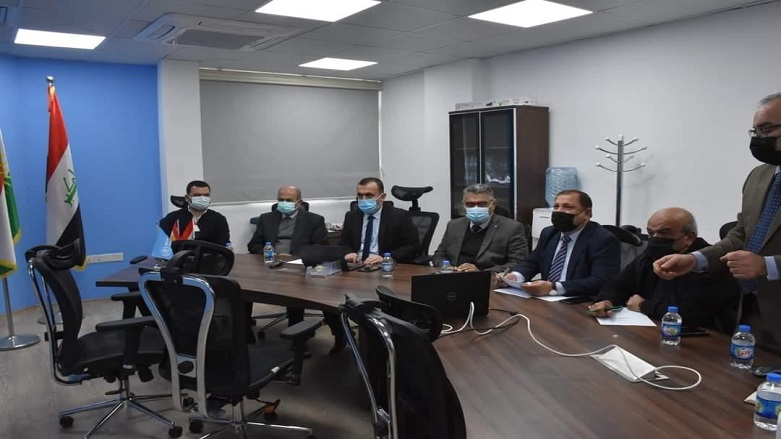COVID-19: KRG holds first meeting with Pfizer in effort to secure vaccine

ERBIL (Kurdistan 24) – The Kurdistan Region’s Ministry of Health announced on Thursday that it had held its first meeting with Pfizer, one of the companies producing a COVID-19 vaccine, as part of efforts to deal with the pandemic in the autonomous region.
A ministry statement specified that, under the supervision and support of the Minister of Health of the Kurdistan Regional Government (KRG), the first meeting with the New York-based pharmaceutical company was conducted by the Higher Consultation Committee in charge of securing vaccines.
Earlier on Thursday, the Kurdistan Region said it had recorded 80 new coronavirus infections and four deaths in the previous 24 hours, the lowest infection rate recorded by the region in several months, bringing the total number of infections up to 104,055, including 3,410 deaths.
In-person classes for children and university students in the Kurdistan Region will remain halted until Jan. 16 as a new variant of COVID-19 emerges, a government spokesperson said on Thursday, stating that previous orders would remain in practice until new measures are taken.
Read More: In-person classes remain halted across Kurdistan Region as new COVID-19 variant looms: KRG
Furthermore, the Iraqi Ministry of Health and Environment announced 790 new cases of the highly-contagious disease over the past day, making the total number of infections in Iraq 600,755, nearly 13,000 of them fatal.
The coronavirus has infected more than 88 million people worldwide and killed just over 1.9 million, according to Johns Hopkins University’s database. The actual figures could be dramatically higher due to insufficient testing capabilities or underreporting.
Editing by John J. Catherine